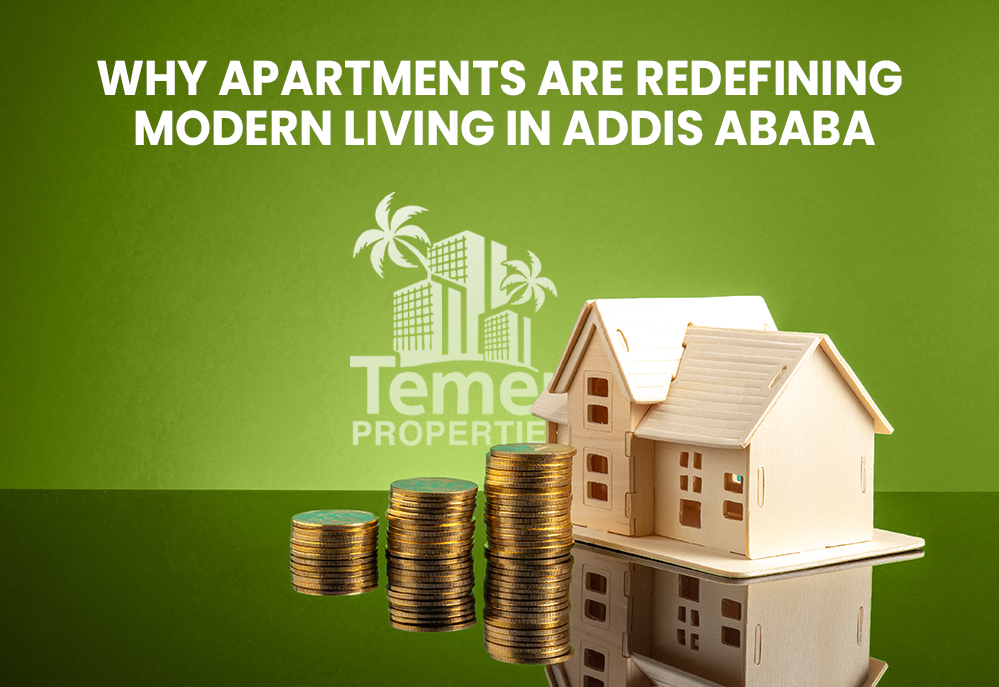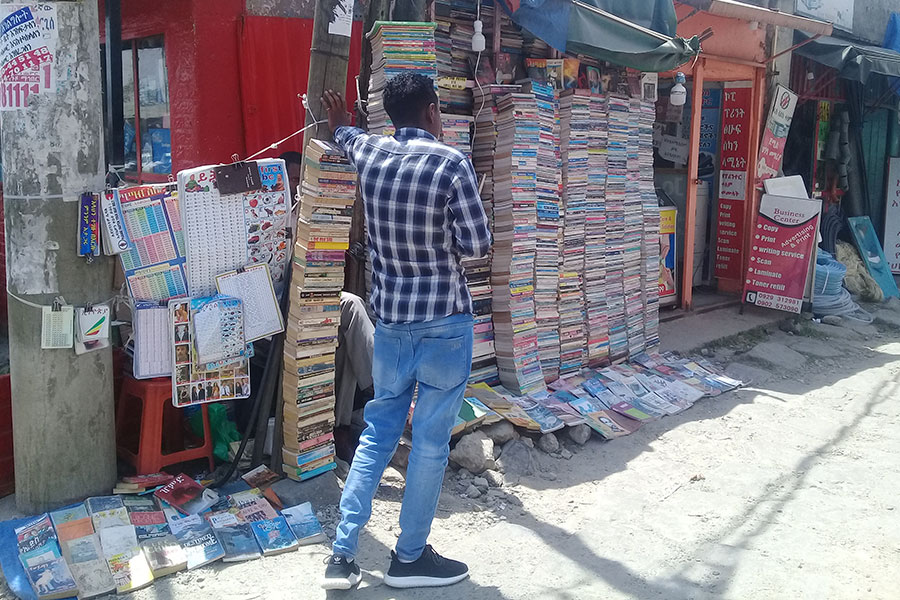
View From Arada | Apr 26,2019
Dec 28 , 2019
By Carolyn Kissane
We black people should know how it feels to be discriminated against for the colour of our skin and fight any form of racism be it in terms of ethnicity or religion, especially towards our own.
Time and again I have wished people on the streets would mind their own business and go on with their daily lives without throwing a word or dropping comments about other people’s business. I am sure most people who have been catcalled agree with me.
Men, no offence, are usually the ones who make these kinds of comments, sticking their nose in other people’s affairs. I am not talking about the common kind of verbal abuse, also known as "lekefa," that women are specifically subjected to on the streets. So much has been said but so little has been done on the matter. However, this is a different matter similar to catcalling in nature.
My husband and I have fallen prey to street predators one too many times, and he was specifically targeted for the colour of his skin. My husband is a white South African. He has been called names like "ferenj" and "China" (which is a very common remark) among many other names. And whenever we walk together, people look at us twice just because we are an interracial couple. Some people take the stares too far and even feel entitled to throw a comment or two our way.
The comments often passed by idle young men on the streets range from uncomfortable to offensive. I have been called a gold digger far too many times. We all know there are women who target rich, old, white men either for their money or for visa opportunities. But some of us are actually in it for love, not for money. Spoiler alert: my husband speaks fluent Amharic and is more Ethiopian than I am. He knows the people, the history and culture very well. If one actually hears him talk on the phone, one would think he is just another Ethiopian. So whenever someone says stuff to me like, “How much is in his bank account?” “Chop his money," (aka you are after his money) or "birrun biyiw” (this is the beauty of having money, which translates to he got you because he’s got money or the guy with the money gets the girl), he stands and shouts at the men in fluent Amharic defending my honor. And when that happens, half the time the people who made those snide comments are too shocked to speak. They usually feel embarrassed.
We have been constantly asked on the streets if we wanted taxis or mobile cards, and beggars follow us everywhere. Borrowing my husband’s words: “Why do they think money falls off a white person, and instead of asking money from an Ethiopian in a big car, they ask money from a white man on foot." He is even thinking of making a T-shirt that reads in Amharic “mobile card, taxi alfelegim.”
It is not only that they ask us for money. The beggars specifically make sure the Ethiopian wife helps them out by talking my husband into giving them money. Some of them even insist he give them money by saying, “You are rich, please feel sorry for us.” And he asks, “How do you know I am rich?” They reply with confidence, “You are white; therefore you must be rich.” He usually turns to me and says, “Do I look like a money machine or a walking ATM to them?” and we laugh and try to brush it off.
Sometimes I wish my husband and I were somehow invisible, so we would go through our lives unbothered by comments like these. The comments get rude sometimes. For instance, this morning, this homeless guy or seemingly homeless and drunk guy shouted at my husband using a derogatory word for no reason. My husband was so pissed off, as he has the right to be. He does not deserve to be treated differently just because he has a different skin shade than the rest of us, even though what makes him so upset is not being targeted or insulted but rather the insinuation that his wife is a prostitute. What is even worse is this is happening in an African country and the person targeted is also African just white.
We black people should know how it feels to be discriminated against for the colour of our skin and fight any form of racism be it in terms of ethnicity or religion, especially towards our own. I know, and the world knows, Ethiopia is a very welcoming country, and we as people are sincere people who make foreigners feel at home. I believe it is only fair to mention that my husband has awesome Ethiopian friends who see him for the amazing guy he is, not for the colour of his skin.
Most reading this article might think this is funny and might see the comments passed at my husband as harmless, but it is really offensive to be picked on constantly in a place where you lived for the majority of your life. It is verbal bullying, and it makes an individual uncomfortable. I personally wouldn’t last a day in his shoes without feeling like I want to vanish to escape the comments.
My mother-in-law (who’s also white) gets these ferenji/China comments too. So the other day when this happens, my mother-in-law came up with a smart come back and said “China is a country, and I am not a country.” I do not know if the people who made the comment understood what she meant, as they think every white person they see is from China, let alone tell the difference between a country (China) and a citizen (Chinese).
Another funny incident that happened was my husband’s nephew, who is also a victim of the "China" remark even though he is half Ethiopian, called this lady "habesha," and she got angry. I did not know calling someone "habesha" was an insult. The message we are sending is we can call someone "ferenj," "China" or whatever we feel like just for the fun of it, and when we are called "habesha" all of a sudden that is offensive. That is not fair. I would like to add something my husband said to me once. He said, “I don’t call moving to Ethiopia immigrating, I call it homecoming, because every human on earth is Ethiopian, as we all came from this wonderful land. So I came back to where my ancestors started out life.” So remember that even if someone looks different, everyone is Ethiopian down the family lineage.
PUBLISHED ON
Dec 28,2019 [ VOL
20 , NO
1026]


View From Arada | Apr 26,2019

Fortune News | Nov 04,2023

Advertorials | Sep 05,2025

Fortune News | Jul 18,2021

Fortune News | Jul 07,2024

View From Arada | Dec 09,2023

Radar | Feb 25,2023

Fortune News | Dec 04,2022

Fortune News | Jul 06,2025

Fortune News | Jun 03,2023

Photo Gallery | 174724 Views | May 06,2019

Photo Gallery | 164946 Views | Apr 26,2019

Photo Gallery | 155182 Views | Oct 06,2021

My Opinion | 136719 Views | Aug 14,2021
Editorial | Oct 11,2025

Dec 22 , 2024 . By TIZITA SHEWAFERAW
Charged with transforming colossal state-owned enterprises into modern and competitiv...

Aug 18 , 2024 . By AKSAH ITALO
Although predictable Yonas Zerihun's job in the ride-hailing service is not immune to...

Jul 28 , 2024 . By TIZITA SHEWAFERAW
Unhabitual, perhaps too many, Samuel Gebreyohannes, 38, used to occasionally enjoy a couple of beers at breakfast. However, he recently swit...

Jul 13 , 2024 . By AKSAH ITALO
Investors who rely on tractors, trucks, and field vehicles for commuting, transporting commodities, and f...

Oct 11 , 2025
Ladislas Farago, a roving Associated Press (AP) correspondent, arrived in Ethiopia in...

Oct 4 , 2025
Eyob Tekalegn (PhD) had been in the Governor's chair for only weeks when, on Septembe...

Sep 27 , 2025
Four years into an experiment with “shock therapy” in education, the national moo...

Sep 20 , 2025
Getachew Reda's return to the national stage was always going to stir attention. Once...

Oct 12 , 2025
Tomato prices in Addis Abeba have surged to unprecedented levels, with retail stands charging between 85 Br and 140 Br a kilo, nearly triple...

Oct 12 , 2025 . By BEZAWIT HULUAGER
A sweeping change in the vehicle licensing system has tilted the scales in favour of electric vehicle (EV...

A simmering dispute between the legal profession and the federal government is nearing a breaking point,...

Oct 12 , 2025 . By NAHOM AYELE
A violent storm that ripped through the flower belt of Bishoftu (Debreziet), 45Km east of the capital, in...